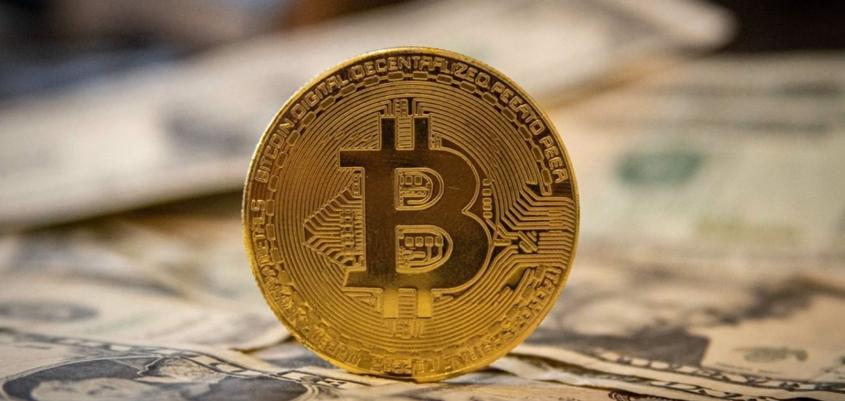Cryptocurrencies are gaining more and more attention, as their global capitalization is developing rapidly, and people are becoming more interested in this system, investing large sums in digital assets. Where will we actually end up at this rate?
On Tuesday, the world's most popular cryptocurrency – Bitcoin – hit a six-month high and neared an all-time high. Specifically, Bitcoin rose as much as 1.5% in the Asian session to $62,991, its highest level since mid-April, approaching its all-time high of $64,895.
Meanwhile, Ethereum has seen similar gains, although it is still a bit away from its all-time high. On Monday, ETH traded as high as $3,419, before rising during the week to a high of $3,957. ETH's previous all-time high was reached on May 12, when it reached $4,177. It is currently trading around $3,820.
The context in which this is happening is not at all accidental: brokers are betting on the expected listing of a futures investment fund in the US that could attract new money to the cryptocurrency sector.
This month alone, the world's most popular digital currency has risen by 40%, and international financial authorities are becoming increasingly concerned about the evolution of cryptocurrencies.
According to Simon Peters, crypto asset market analyst at investment platform eToro, the crypto market is experiencing extremely important events for the future of digital assets. Here are two of them:
Grayscale suggests turning Bitcoin fund into ETF
Crypto asset management firm Grayscale has given its biggest hint yet that it plans to turn its bitcoin fund into an exchange-traded fund ( ETF) with physical settlement.
Although the intention had not been confirmed at the time of writing, chief executive Barry Silbert hinted in a short tweet that the firm may soon switch from its current structure to an ETF-like structure. The news comes after the CEO criticized futures-backed bitcoin ETFs, saying, "Friends don't let their friends buy and own futures-backed ETFs."

Silbert's tweet comes after the approval of the ProShares ETF – which is a bitcoin futures fund. The announcement boosted the price of bitcoin as investors see regulatory support for crypto-based funds as a confirmation of their activities.
Vladimir Putin approves of cryptoassets
Russian President Vladimir Putin has taken a favorable stance towards cryptoassets.
Although he did not declare himself an enthusiast, the Russian leader expressed a relative openness to crypto-assets in an interview with CNBC last Thursday.
Putin stated about cryptocurrencies that they "have the right to exist and can be used as a means of payment". He also added that it is too early to discuss the idea of trading oil and other commodities through cryptocurrencies, as these resources make up a large part of Russia's export base.
Putin's relative openness to crypto-assets likely comes as Russia faces difficulties in accessing international capital in the form of US dollars. The Eurasian nation was hit by sanctions after its 2014 invasion of Crimea.
IMF worried about overexposure to cryptoassets in developing countries
The International Monetary Fund, in its latest financial stability report, slightly lowered the outlook for global economic growth for 2021 compared to forecasts since July, as the pace of recovery has slowed. The IMF has warned that the world's economies are recovering at different rates in the context of the health crisis.
The IMF also noted the progress made by cryptoassets, but expressed concern about the risks they can bring to both financial markets and investors.
According to eToro analyst Bogdan Maioreanu, the IMF recently forecast global GDP growth of nearly 5.9% this year and 4.9% next year. Even though the forecast was revised down 0.1 percent from July estimates, the increase is nearly double the average over the past decade.
While the fund expects economic output in advanced countries to return to its pre-pandemic trajectory in 2022 and even exceed it by 0.9% in 2024, the outlook for emerging and developing economies outside China is much worse. The IMF estimates that in 2024 the economy will evolve by 5.5% below pre-pandemic forecasts.
Rising prices are also a cause for concern, but the IMF expects inflation for advanced and emerging economies to return to pre-pandemic levels by mid-2022. There is also uncertainty created by labor shortages, even as which people are unemployed.
There are ports that can't unload containers, shops that can't find transport to be supplied with goods, a constant pressure on the availability of shipping. Gita Gopinath, the IMF's chief economist, recently stressed the need to be "particularly vigilant about supply-side shocks" so that they do not trigger a downward spiral of wage pressures. "Central banks should be prepared to react quickly if risks materialize during this unprecedented economic recovery," Gopinath said.
The International Monetary Fund is also analyzing cryptoassets, believing that they have evolved to meet various needs for speculative investment, storage of value, currency conversion and payments. Challenges to the ecosystem include operational and financial integrity risks from cryptoasset providers, investor protection risks regarding cryptoassets and decentralized finance (DeFi), and non-transparent reserves and reporting for some stablecoins.
The IMF is also concerned that crypto-asset adoption in some emerging markets and developing economies has outpaced that of advanced economies. One of the biggest risks associated with cryptoassets in emerging markets is the circumvention of foreign exchange and capital movement restrictions. The growth of crypto-asset transactions in these economies could lead to destabilization of capital flows. The IMF urges policymakers to implement global standards for cryptoassets and improve their ability to monitor the crypto ecosystem.
